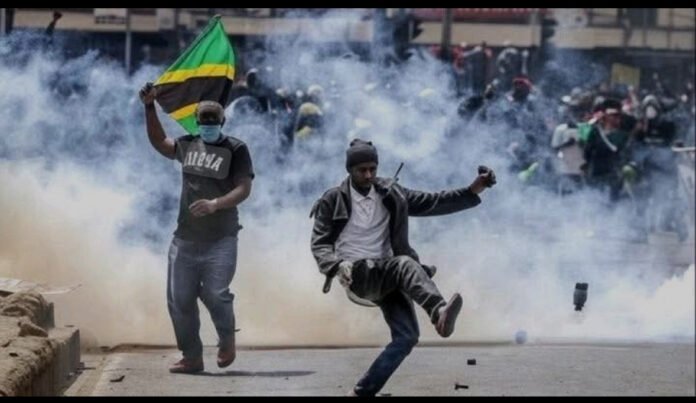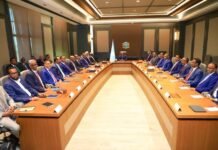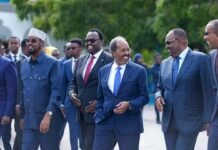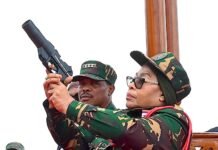By HAN News Desk
DAR ES SALAAM — Tensions in Tanzania have escalated sharply between the ruling party led by President Samia Suluhu Hassan and the main opposition group, Chama cha Demokrasia na Maendeleo (CHADEMA), which accuses the government of undermining the electoral process and repressing dissent.
In April 2025, the country’s electoral body, the Independent National Electoral Commission (INEC), announced that CHADEMA was disqualified from participating in the upcoming presidential and parliamentary elections, citing the party’s refusal to sign a mandatory Code of Conduct. CHADEMA rejected the decision, calling it “unconstitutional” and part of a wider effort to sideline genuine opposition from the political process.
The arrest of opposition leader Tundu Lissu on 10 April 2025 drew widespread attention. He was charged with treason and “publishing false information” after leading a rally demanding major electoral reforms under the slogan “No Reforms, No Elections.” Rights groups and analysts have described the charges as politically motivated, intended to silence one of the government’s most outspoken critics.
Other senior opposition figures have also been detained. In August 2024, more than a hundred CHADEMA youth members, officials, and journalists were arrested ahead of local elections in what human rights groups described as an attempt to intimidate political opponents. Amnesty International and Human Rights Watch both condemned the mass arrests and called for their immediate release.
Earlier in January 2024, thousands of protesters took to the streets in Dar es Salaam and other major cities, calling for reforms to electoral laws and greater respect for democratic freedoms. Security forces responded with heavy-handed measures, leading to arrests and reports of injuries. The protests reflected growing frustration among Tanzanians who believe that political space has continued to shrink despite promises of reform.
President Samia Suluhu Hassan has made gestures toward opening political space, including lifting a six-year ban on opposition rallies in January 2023. However, critics argue that such reforms are largely symbolic and that the recent disqualification of CHADEMA and the prosecution of its leaders reveal a deeper unwillingness to allow competitive politics.
The government maintains that it is committed to preserving national stability and ensuring peaceful elections, accusing opposition leaders of inciting unrest. But opposition groups and civil society organizations warn that the country is sliding back toward authoritarian practices under the guise of maintaining order.
Observers say the stakes are high. The dispute goes beyond a single election—it raises fundamental questions about how power is contested and transferred in Tanzania. The exclusion of a major opposition party and the repeated arrests of its leaders have cast serious doubt on whether the upcoming polls can be free or fair.
For supporters of the government, stability and continuity are paramount in a region facing economic and security challenges. For opposition supporters and many Tanzanian citizens, what is at stake is the very future of democracy in the country.





